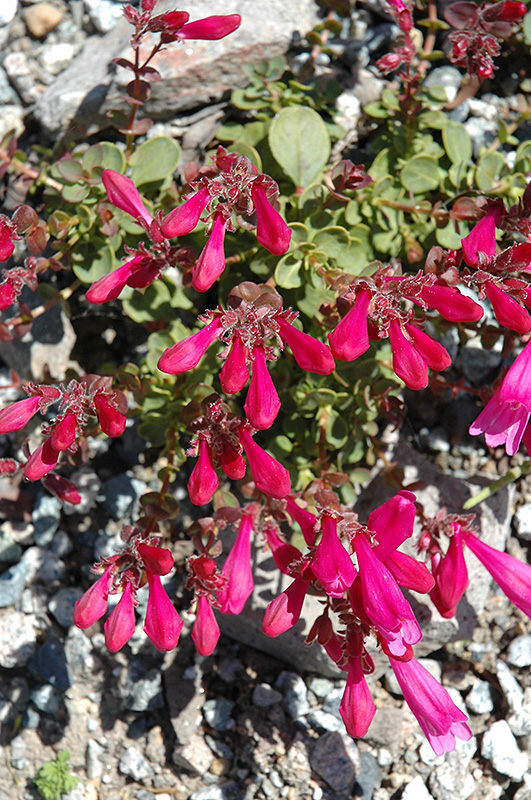Cliff Beard Tongue
Description
A very low growing and mat forming penstemon producing gorgeous pink flowers that rise above gray-green foliage; a beautiful accent for a rock garden, along walkways, or in containers
Landscape Attributes
Cliff Beard Tongue is an herbaceous perennial with a ground-hugging habit of growth. It brings an extremely fine and delicate texture to the garden composition and should be used to full effect.
Cliff Beard Tongue is recommended for the following landscape applications;
Planting & Growing
Cliff Beard Tongue will grow to be only 2 inches tall at maturity extending to 6 inches tall with the flowers, with a spread of 12 inches. When grown in masses or used as a bedding plant, individual plants should be spaced approximately 8 inches apart. Its foliage tends to remain low and dense right to the ground. It grows at a fast rate, and under ideal conditions can be expected to live for approximately 10 years. As an herbaceous perennial, this plant will usually die back to the crown each winter, and will regrow from the base each spring. Be careful not to disturb the crown in late winter when it may not be readily seen!
This plant does best in full sun to partial shade. It prefers dry to average moisture levels with very well-drained soil, and will often die in standing water. It is considered to be drought-tolerant, and thus makes an ideal choice for a low-water garden or xeriscape application. It is not particular as to soil pH, but grows best in poor soils. It is somewhat tolerant of urban pollution. This species is native to parts of North America. It can be propagated by division.
Cliff Beard Tongue is a fine choice for the garden, but it is also a good selection for planting in outdoor pots and containers. Because of its spreading habit of growth, it is ideally suited for use as a 'spiller' in the 'spiller-thriller-filler' container combination; plant it near the edges where it can spill gracefully over the pot. Note that when growing plants in outdoor containers and baskets, they may require more frequent waterings than they would in the yard or garden.

